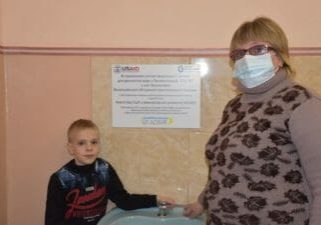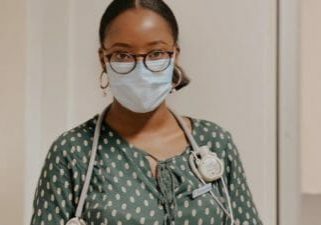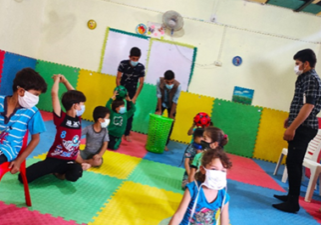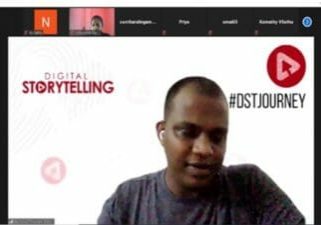News > Blog
Can the ‘Next Normal’ Economy Learn from the Successes of Inclusive Businesses?
Published 07/01/2020 by globalcommunities
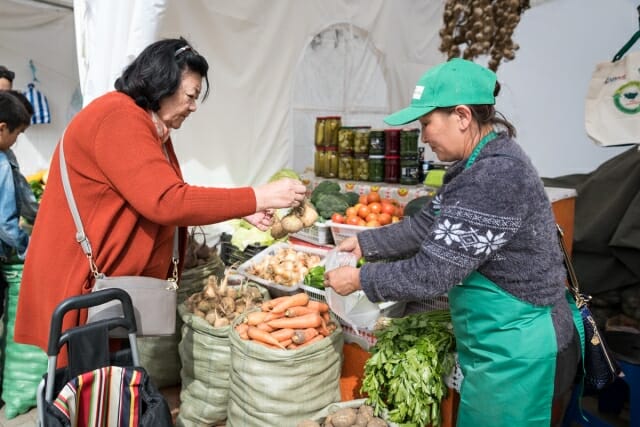
By Kristin Wilcox Feldman, Chief of Party, USAID CLEAR Program
Link to article on Medium.com
The impacts of Covid-19 are weighing heavily on so many of us right now. As reality sinks in it becomes evident that Covid-19’s weight has hit some of us more dramatically than others. As governments globally struggle to implement measures addressing preventative and acute health priorities they are also forced to recognize that the most vulnerable populations health-wise are also in overlapping categories of economic vulnerability. This has been particularly true for those working in micro, small and medium enterprises (MSMEs) which the World Bank reports to comprise 90% of the businesses worldwide. Rapid studies in Uganda and Bangladesh have shown an economic slowdown of over 50% in developing economies and have also shown staggering household impacts. The impacts of ‘stay at home’ orders, personal protection equipment (PPE) and sanitary requirements, and trade slowdowns have meant that low wage workers have been laid off or have had to work longer hours at considerable risk to their own health and that of their families’. Unfortunately, with infections still on the rise, businesses may be forced to stay shut longer, to say nothing of medical bills and other ecological disasters that are compounding this crisis for vulnerable communities. This can drive the economic wedge deeper between those that can recover and those who cannot. The World Bank has indicated that their baseline scenario is 71 million people being pushed into extreme poverty but the number may approach 100 million.
It is critical that communities participate in dialogue with local governments in thinking about their own post-Covid economic recovery period and how best they can achieve short term and long term results that build wealth. Local governments will be considering which economic or business tools are available to them to assist MSMEs that have lost their businesses, sold their assets, and are now focusing on the daily survival. As stakeholders in their own futures, communities must be supported to consider broader resiliency. The past decades have illustrated that financial shocks, stemming from economic, health or environmental instigations, are likely to happen regularly.
How can communities stop the ‘one step forward, two steps back’ scenarios? How can we help local governments, who will be on the front lines of this response, to support those who have lost jobs and businesses to regain their economic footing and build again? Perhaps even more importantly — knowing that communities need to anticipate the need for resilience — how can they be supported to rebuild in a more human centered, inclusive way?
Luckily history has signaled that innovation-led development is often enduring development. Throughout this crisis there have been many positive stories about MSMEs, specifically inclusive ones, such as cooperatives, Employee Stock Ownership Programs (ESOPs), and other forms of employee ownership, that have rallied around their employees and supported their communities. The International Labor Organization (ILO) has actually put together a list of businesses who are demonstrating how these businesses models put their employees and communities at the center; they have increased pay and cut rates at the top to pay lower income colleagues, provided increased hours of day care, increased rates of leave-with-pay accruals, increased food discounts, and psychosocially supported each other during lock downs. This is not to say that there are not examples of MSMEs who have rallied around the community and its health workers in order to do what they could — this is to say that these stories serve to remind policy makers, local governments, educators and struggling business communities that there are business models that are designed from the onset to invest in their communities and sustain economic shocks. As governments develop their post-Covid economic recovery plans communities must express that their priorities lie with inclusion and support for those businesses that helped them get through the acute economic phases of the pandemic.
If local governments have had to divert public resources into the health sector and economies that are floundering, then we can expect that what is missing in community economies are 1) local wealth generation resulting in increased transactions; 2) decent, sustainable work solutions for all members of the community that cannot be outsourced; 3) internal education by private organizations; and 4) private sector community investment that works in partnership with public sector planning. To reverse these gaps, the challenge is to partner key stakeholders in economic rebuilding strategies and support them to co-redesign for the ‘next normal’. In this phase we must internalize the need for holistic resilience and draw upon the businesses that begin from that premise. From Spain to the UK to India — this actually does happen.
Policy makers may not be aware of the economic levers at their disposal to support the expansion of community and socially conscious business opportunities nor how to partner with the business community to ensure they have education on how to emulate aspects vital in achieving inclusive, resilient results. Thus, employee owned businesses must be a part of the solution — particularly in public education and from a public and financial advocacy perspective. In the US, local representatives are now running on platforms of enhancing the enabling environments from inclusive business designs such as B Labs and triple bottom line accounting. Those platforms came about because the business communities created education for those public representatives. Credit unions and SACCOs, who are required to reinvest their profits back into their communities, have long understood the need for innovative credit packages that the enable the pooling of resources and diversification of risk across shareholders. They should be considered key partners in developing community investment models. So there is precedent within communities for inclusive business models and access to finance for them but communities must not be stuck on ‘getting back to normal’. Instead they must be looking for solutions to move economies to a ‘next normal’ that learns from our current circumstances.
It will take creativity and leadership from those businesses that have proven their inclusive economic model and a collective community will that has understood the necessity of preservation of values and existing wealth through innovative adaptation and built in resilience as a foundation for future prosperity.



